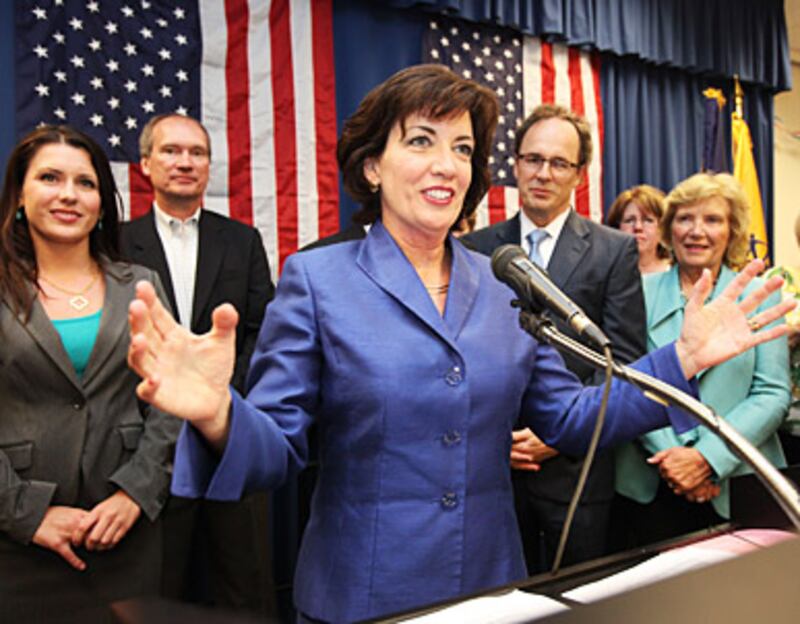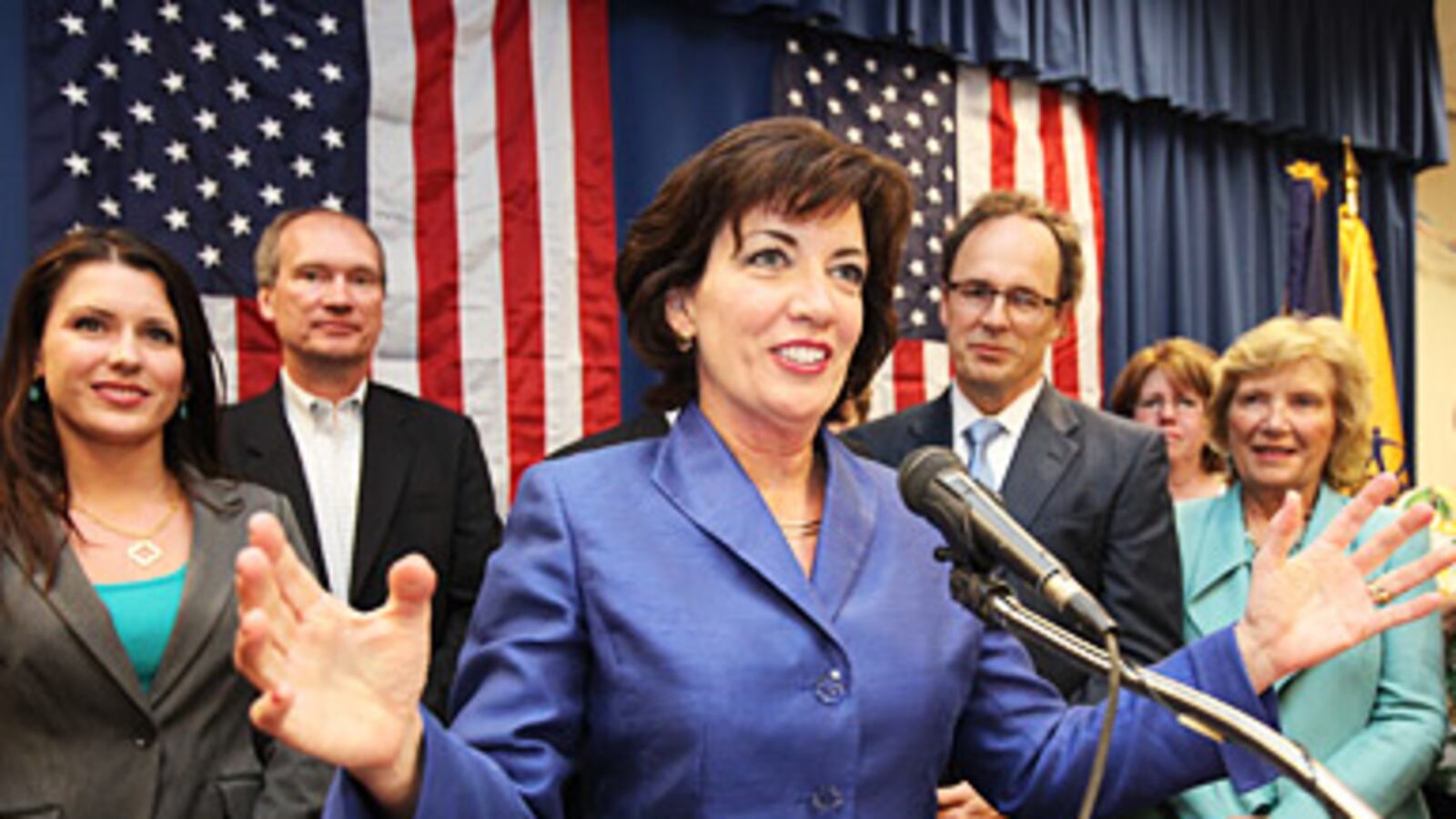Medi-scare works.
That’s the cynical lesson politicos in both parties will take from Democrat Kathy Hochul’s NY-26 special election victory on Tuesday. And that’s bad news for the nation.

We’ve seen a rise in fear-mongering policy attacks in American politics since the “death panel” slurs that disfigured the health-care reform debates in 2009. Some Democrats see the pushback against Rep. Paul Ryan’s plan as their chance for revenge.
One ad this special election cycle was as ugly as anything aired in recent years, portraying a Paul Ryan stand-in literally pushing Grandma off a cliff.
Democrats laughed it off as hardball politics with a sense of humor, but they wouldn’t have been laughing if Republicans ran the ad against one of their own. Just like liberal descriptions of the bipartisan Bowles-Simpson Deficit Reduction Panel as “the cat-food commission,” it’s nothing but an attempt to scare seniors, essentially an argument for inaction and political paralysis in the face of a looming fiscal crisis.
Here’s the thing about Medi-scare—both parties do it.
During the last weeks of the 2010 cycle, Republicans released a barrage of ads in close races, accusing Democrats of wanting to cut Medicare by $500 billion. This included Rand Paul (and yes, the cognitive dissonance is enough to make your head explode).
Medi-scare’s success reflects the growing gap between winning elections and the real responsibilities of governing—which, after all, is supposed to be the purpose of our politics.
The results of this special election will encourage politicians to talk big about fiscal responsibility but avoid proposing any big ideas to actually solve the problem.
The over-arching message of the 2010 election was that voters understand the importance of dealing with the generational theft that is the deficit and the debt. But the only way to reduce the deficit and the debt in any meaningful sense is to enact entitlement reform. That means making Medicaid and Medicare more efficient so that it remains solvent.
The results of this special election will encourage politicians to talk big about fiscal responsibility but avoid proposing any big ideas to actually solve the problem.
It will help enshrine an essentially defensive view of politics that views the best strategy as simply waiting for your opponent to over-reach and then benefit from the backlash. And it will compound the lack of courage we have seen in dealing with the harsh fiscal realities that are clouding our nation’s future. After all, the world’s largest debtor nation cannot remain the world’s sole superpower indefinitely.
(For a fact-based, rather than fear-based, refresher course on the long-term fiscal mess we’re in, here’s a presentation by the Concord Coalition or tune into the Peterson Foundation Fiscal Summit, going on today in Washington.)
You can disagree with the details of Paul Ryan’s plan. But at least he had the guts to put forward a plan when other members of his party and the president were afraid to propose specifics.
It doesn’t help that Republicans have done a lousy job defending the Ryan plan. With Newt Gingrich and others throwing it under the bus, they allowed Democrats to define the terms of the debate. This became the "kill Medicare" bill, "Republican social engineering" rather than a serious attempt to deal with a serious problem.
Republicans will now have a choice as they re-trench—run away from the Ryan plan entirely (this will be initial conventional wisdom) or rush to define it more accurately and use it to frame the larger debate about fiscal responsibility.
In the process, Republicans will need to confront a contradiction at the heart of their coalition. Fiscal discipline is the glue that holds the various factions of the GOP together and helps connect it with independents. But at the same time, the Republican Party’s reliance on older white voters as a core demographic makes it more difficult to actually propose a real plan to deal with the problem.
NY-26 wasn’t just one of the more Republican-leaning districts in the nation—it is one of the oldest. Its legacy of electing Goldwater VP nominee William Miller and tax-cutter Jack Kemp to Congress was outweighed by the concerns of an aging population.
Democrats believe that NY-26 has given them a foolproof 2012 playbook, and Republican political consultants are engaged in an extended game of I-told-you-so.
It’s tempting to just take the lessons of this election as a re-affirmation of age-old political wisdom—don’t mess with people’s benefits or they will punish you at the polls. This isn’t anything that politicians standing around a cracker barrel in the 1930s didn’t know.
But the danger is that old-fashioned, short-term thinking politics is proving incapable of dealing with the slow moving crisis we face. Fear-mongering can win elections and frame a debate—but it doesn’t help solve a problem. And if we don’t develop the bipartisan political will to deal with long-term deficits and debt, it won’t be grandma who gets thrown over a cliff—it will be the entire nation.
John Avlon's most recent book Wingnuts: How the Lunatic Fringe is Hijacking America is available now by Beast Books both on the Web and in paperback. He is also the author of Independent Nation: How Centrists Can Change American Politics and a CNN contributor. Previously, he served as chief speechwriter for New York City Mayor Rudy Giuliani and was a columnist and associate editor for The New York Sun.






